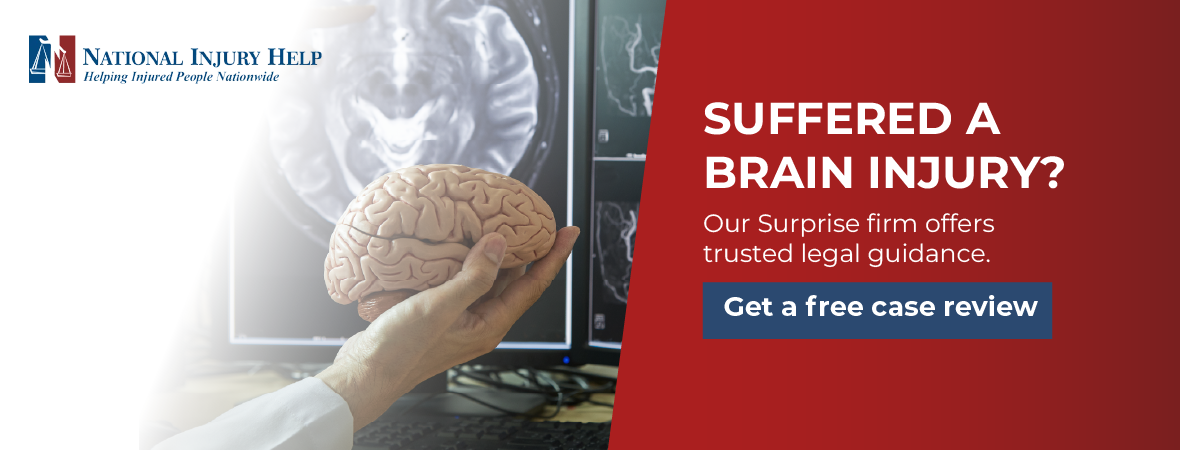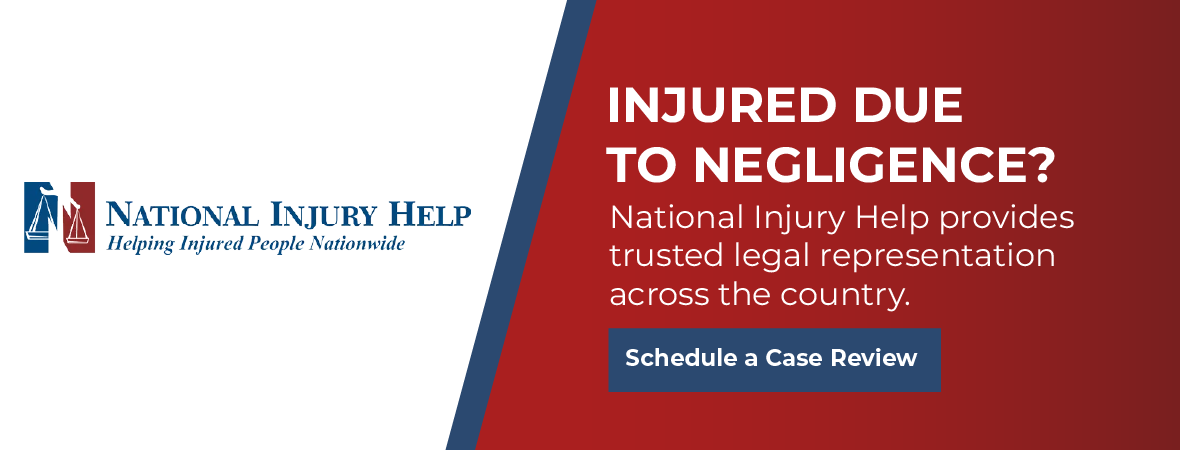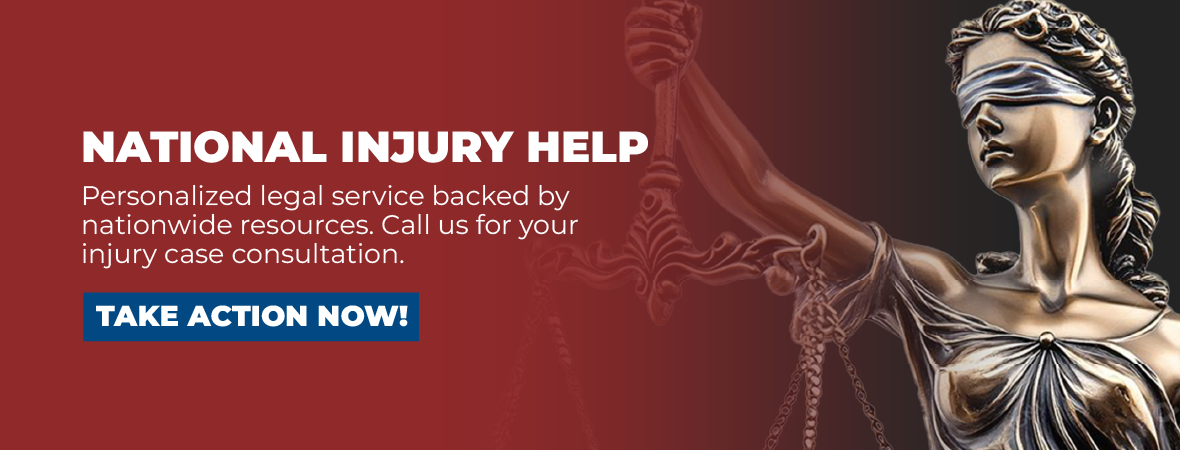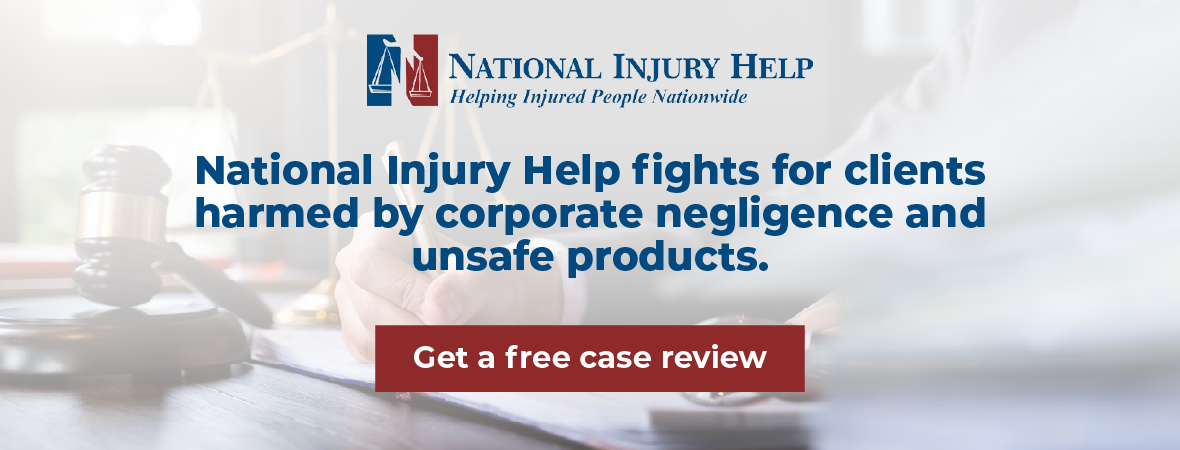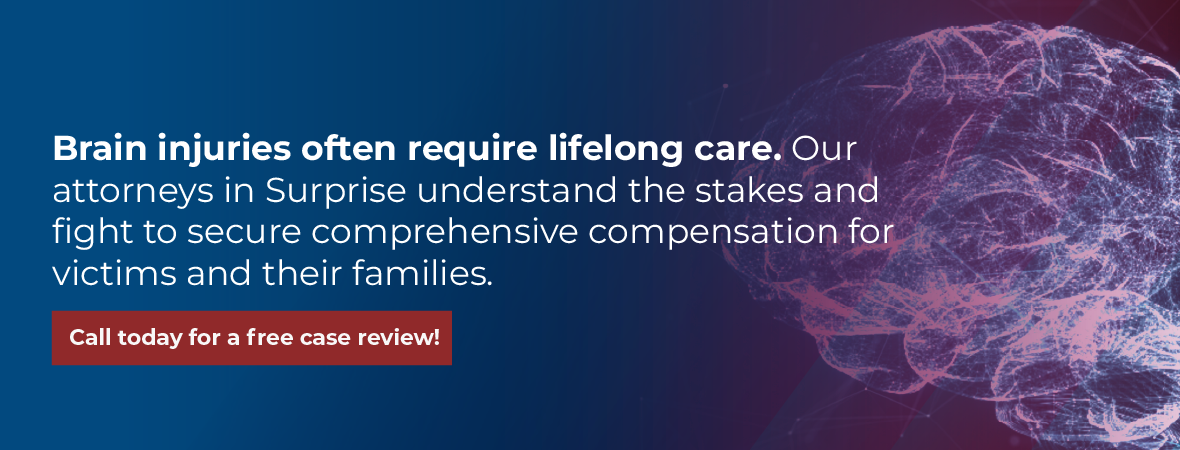Brain injuries can have lasting effects on your health, work, and daily life. Contact National Injury Help at 1 (800) 214-1010 today. We are here to protect your future and support your recovery every step of the way.
You never expect life to change in a single second, yet a sudden blow to the head can steal memory, concentration, and the ability to hold a simple conversation. Long after cuts heal and bruises fade, the hidden damage inside the brain continues to disrupt work, family time, and every plan you made for the future.
In Surprise, Arizona, traumatic brain injuries happen on busy highways like Loop 303, on construction sites that shape new neighborhoods, and even in hospital rooms when oxygen levels drop during a procedure. Victims wake up in Banner Del E. Webb Medical Center without recognizing loved ones or remembering why they left home that morning. Medical bills and restless nights pile up while employers push for a return date that the injured person cannot meet.
You do not have to face that upheaval alone. Arizona law gives you the right to demand money for therapy, lost wages, home modifications, and the pain that never quite lets go. A local brain injury lawyer who lives and works in Surprise knows the streets where crashes happen, the doctors who treat head trauma, and the court rules that decide how evidence reaches a jury. With guidance and timely action, you can protect your family’s finances and your own roadmap for recovery.
What Is a Traumatic Brain Injury?
A brain injury is a medical condition, so we start with the science.
Here is how doctors define and classify these injuries
Doctors use the term traumatic brain injury when an external force, such as a blow, jolt, or penetrating object, changes brain function. They set TBIs apart from acquired brain injuries that stem from internal events like strokes or infections. Severity falls into mild, moderate, and severe categories.
A mild injury often matches what people call a concussion, yet any TBI can disrupt life. A moderate injury may come with extended confusion or imaging that shows bruising. A severe injury can involve long unconscious stretches or lasting memory loss.
Primary and secondary damage deserve separate attention
Primary damage is the harm done at the exact moment of impact. Cells stretch, axons tear, and blood vessels snap. Secondary damage shows up later. Pressure builds when fluid or blood collects inside a skull that cannot expand.
Oxygen starvation may continue if swelling cuts off blood flow. An early CT or MRI can reveal fractures or bleeding, but follow-up scans often show new trouble that requires rapid care.
Symptoms appear in many shapes and sizes
Early signs include headaches, dizziness, blurred vision, nausea, and a feeling that time is sliding by in fragments. Over days or weeks, people notice mood swings, short-term memory gaps, and trouble finding words.
Some patients feel no pain yet struggle to pay bills because simple math now drains their energy. Many of these symptoms overlap with stress or fatigue, which is why busy clinics sometimes overlook them.
Delay and misdiagnosis are common in real life
Emergency rooms focus on visible wounds. If you walk in talking and your scan looks clean, staff may send you home with pain pills and discharge papers that read minor head injury. Hours later, pressure rises, or emotional shifts send family members back to the hospital.
Because small bleeds can grow, any new symptom deserves immediate follow-up. Thorough documentation from day one also strengthens legal claims by tying each problem to the original event.
With the basics in mind, we can explore why TBIs appear so often in Surprise.
Leading Causes of Brain Injuries According to ab Experienced Surprise Brain Injury Attorney
Daily routines hide risks that grow in a fast-growing city.
Traffic on I-10, Loop 303, Bell Road, and Grand Avenue creates constant danger
Rear-end impacts whip the head forward, then back. Side collisions spin a vehicle and throw occupants against windows or doors. Even with airbags, the brain keeps moving inside the skull until it slams against bone. Motorcyclists, bicyclists, and pedestrians face greater force because little protects them from direct contact.
Falls strike in homes, stores, and public walkways
A wet grocery aisle, an uneven sidewalk crack, or a loose stair rail can drop a person in a split second. Older adults lose balance more easily, but anyone can trip over clutter or slip on spilled drinks. The ground meets the head with no soft transition, and the brain shifts under sudden deceleration.
Workplace and construction zones carry unique head hazards
Surprise continues to build new neighborhoods, shopping centers, and highways. On job sites, ladder tips, tools fall, and forklifts swerve. Hard hats help, but do not block all force. Industrial areas near cotton fields and logistics hubs use heavy machinery that can strike workers as they load or unload cargo.
Sports collisions and intentional assaults also land people in emergency rooms
Youth football tackles, high-speed soccer headers, and adult recreation leagues all feature high-energy impacts. Personal violence, though less predictable, can involve fists, blunt objects, or firearms, each capable of fracturing bone and bruising brain tissue.
Medical errors and oxygen loss can injure the brain
During surgery, an airway tube can kink or slip, starving the brain of oxygen in minutes. Childbirth complications may squeeze the umbilical cord or delay delivery, leading to hypoxic injury in newborns. Monitoring lapses turn minor mishaps into lasting harm if staff miss falling oxygen levels.
Understanding causes helps families trace liability and prove someone else could have prevented the harm.
Long-Term Impacts of a Brain Injury
Effects unfold over months and even years.
Physical and cognitive functions may never return to prior levels
Weakness on one side, tremors, or partial paralysis can limit basic movement. Words may tangle as the brain searches for them. Reading speed slows, and multitasking becomes exhausting.
Emotional and behavioral changes alter relationships
Anxiety might greet every sunrise. Depression can shadow daily chores. Irritability or sudden anger episodes surprise spouses and children. Some survivors withdraw, fearing embarrassment in social settings.
Jobs and classrooms do not wait for injured brains to catch up
A former accountant may now lose track of numbers on simple ledgers. A high-school student might need special education plans to finish assignments. Dropped income wedges families between medical bills and mortgage payments.
Families carry the caregiving load
Spouses turn into schedulers, medication managers, and primary breadwinners. Children help with chores beyond their years. Savings meant for college or retirement flow into therapy, adaptive equipment, and home remodeling.
Surprise Brain Injury Attorney Explains Arizona Brain Injury Laws and Your Rights
Statutes set deadlines and rules for fault.
Two years sounds long, but it passes quickly
Arizona’s standard limitation period gives victims twenty-four months to file a lawsuit. Evidence grows stale, witnesses move, and memories fade, so acting early is critical.
Claims against a public agency must be made within one hundred eighty days, a deadline that passes quickly when hospital stays last for weeks.
Comparative negligence keeps doors open even when mistakes overlap
If you were thirty percent at fault for a crash, you can still recover seventy percent of damages. Opposing insurers often inflate your share of blame. A lawyer fights those attempts with traffic records, skid-mark analysis, and expert testimony.
Proof lies in records and expert opinions
Hospital charts, imaging, and neurological tests paint the medical picture. Accident reconstruction engineers show how forces acted on the body. Vocational experts explain why a once-steady job no longer fits. Together, these voices turn complex data into a story jurors can follow.
Many parties may share legal responsibility
Drivers, property owners, doctors, employers, product manufacturers, and government bodies all carry duties of care. When they breach those duties and an injury follows, they owe compensation. Identifying every liable party widens the pool of available insurance funds.
Surprise Brain Injury Attorney Explains What to Do After a Brain Injury in Surprise
The first twenty-four hours after a head injury can set the tone for your entire recovery and for any legal claim you may later file. Each choice you make on day one carries forward into medical records, insurance files, and courtrooms. The following steps show how to protect your health and your rights, using clear actions that anyone in Surprise can follow without advanced medical or legal training.
Step One: Put Medical Care at the Top of the List
Your brain controls every heartbeat, breath, and movement, so even a slight jolt can leave damage that hides behind normal skin and a steady voice. Do not rely on how you feel in the moment. Adrenaline masks pain, and some dangerous conditions, such as slow hemorrhages, grow silently for hours.
Drive or ride to Banner Del E. Webb Medical Center or visit a trusted urgent care clinic if the emergency department has long wait times. Insist on a full evaluation that includes a CT scan or MRI, even if staff believe you only bumped your head. Be sure to tell nurses and doctors about every symptom, no matter how small it seems.
A quick mention of brief nausea or a moment of blurry vision may lead to imaging that detects a small bleed before it becomes a serious problem. Ask for printed copies of all test results, discharge instructions, and medication orders before you leave. Those papers will later serve as proof that the injury started on that exact date.
Step Two: Gather Daily Evidence Through Written and Video Records
When you get home, begin a symptom journal. Open a notebook or set up a private phone video log. Describe morning headaches, afternoon dizziness, and any emotional changes that catch you off guard. If you forget appointments or repeat the same question to family members, add that to the record.
Use plain language, and include the date and time for each entry. Ask close relatives to note tasks they help with, such as driving you to therapy or preparing meals when you feel disoriented.
Keep track of every day you miss work. Scan or photograph pay stubs showing reduced hours or unpaid leave. These personal records capture the real-world impact that medical scans never show. Later, when an insurance adjuster doubts the seriousness of your claim, these notes can speak louder than a stack of X-rays.
Step Three: Treat Quick Insurance Paperwork With Caution
Most auto insurers and property insurers use early contact to limit payouts. Within a day or two, an adjuster may call or even show up at the hospital with forms that look routine. The paperwork often includes medical record releases and broad settlement agreements. Signing too soon trades long-term financial security for short-term convenience.
Once you accept a settlement, you cannot reopen the claim if headaches linger or new memory problems appear. Politely tell the adjuster you are still under medical evaluation and that you want legal guidance before signing anything.
Take down the caller’s name, phone number, and claim number, then end the conversation. Refusing to sign on day two does not harm your right to benefits. It only protects you from undervaluation.
Step Four: Call a Local Brain Injury Attorney as Early as Possible
A qualified lawyer acts as both shield and investigator. From the moment you retain counsel, all insurer communications route through the law office, ending surprise phone calls and pressure tactics. Your attorney sends preservation letters that force trucking companies, stores, or other parties to keep crucial video footage and electronic data.
The firm may order a second medical opinion from a neurologist who specializes in traumatic injuries, adding depth to your diagnosis. Lawyers also schedule neuropsychological tests that measure memory, attention, and processing speed. These objective scores can prove cognitive decline even when scans look normal.
Prompt legal action locks in evidence before camera systems overwrite footage, witnesses relocate, and skid marks fade under desert rain.
How a Surprise Brain Injury Attorney Can Help
Lawyers translate pain into payable numbers.
A strong case begins with a deep investigation
Attorneys visit crash scenes, measure skid marks, and inspect defective equipment. They speak with first responders, locate security videos, and subpoena phone records that reveal distracted driving.
Multiple compensation sources increase total recovery
Auto liability policies, uninsured motorist coverage, homeowners insurance, health insurance liens, workers’ compensation, and disability benefits all play roles. A knowledgeable lawyer coordinates them to avoid gaps or double-counting.
Insurance carriers respect skilled negotiation
Adjusters use delay and doubt to lower payouts. When a law firm presents medical reports, economic projections, and a credible threat of litigation, the tone changes. Settlement offers rise because trial exposure grows expensive.
Long-term recovery needs comprehensive funding
Surgeries, inpatient rehabilitation, outpatient therapy, counseling, and assistive devices add up quickly. Life-care planners outline costs for attendant care, wheelchair vans, and home modifications such as widened doors and ramps.
Contingency fees remove up-front barriers
You pay nothing at the start. The firm advances filing fees, expert charges, and deposition costs. When a settlement or verdict arrives, the attorney’s fee comes from that recovery. If no money comes in, you owe no fee.
Types of Compensation an Experienced Surprise Brain Injury Attorney Can Secure for Victims
Money cannot reverse damage, yet it buys the tools to adapt. It enables us to rebuild what has been lost and craft new pathways forward. While it may not heal emotional wounds, it can provide the resources needed to create a more resilient future. Ultimately, the ability to adapt hinges not only on financial means but also on our collective strength and determination to overcome adversity.
Medical bills stretch far beyond the emergency room
Intensive care, neurosurgery, repeat imaging, prescription medication, and physical therapy continue for months. Home health aides and ventilator supplies may last for years.
Lost wages drain savings quickly
Each missed paycheck widens financial stress. If cognitive limits end your career, an economist projects future losses and converts them to present value.
Pain and suffering capture invisible weight
Courts allow payment for daily headaches, memory frustration, and social embarrassment. Friends testify about personality changes. Diaries reveal private battles that numbers alone cannot express.
Permanent disability demands lifestyle changes
Wheelchair ramps, roll-in showers, voice-activated lights, and adaptive computer gear allow basic independence. Lump-sum funds or structured settlements pay for these upgrades.
Punitive damages arise when conduct is outrageous
A drunk driver speeding through a school zone, a surgeon operating under the influence, or a company hiding known defects may face punitive awards designed to punish and deter.
FAQs About Brain Injury Lawsuits in Arizona
How do I confirm my head injury is legally a TBI?
Any medical record showing loss of consciousness, imaging abnormalities, or neuropsychological deficits tied to an external event can satisfy legal standards. A lawyer reviews your file with medical experts.
What if symptoms appeared days later?
Delayed onset is medically recognized. Seek care immediately after new signs surface and inform providers about the original incident. Timely notes link the puzzle pieces.
Can I file for a loved one who cannot act for themselves?
Yes. Arizona courts allow guardians or conservators to file on behalf of incapacitated adults or minors. The process begins with a petition for appointment.
How long does a case usually last?
Uncontested claims might settle within nine months. Complex multimillion-dollar cases with multiple defendants can take two to three years, especially if trial becomes necessary.
Will I need to appear in a Maricopa County courtroom?
Many claims settle before trial, yet your presence may be required for depositions or mediation. Your attorney prepares you for each step and seeks accommodations if travel or medical issues arise.
You now have an overview of rights, risks, and recovery paths.
Contact a Surprise Brain Injury Attorney Today
A brain injury can disrupt every part of your life, from your ability to work and care for your family to the simple routines that once felt automatic. When another person’s careless actions cause that injury, you deserve support, answers, and fair head trauma compensation in Arizona. At National Injury Help, we are here to guide you through the legal process while you focus on healing.
We understand that brain injuries often come with confusion, anxiety, and a long road to recovery. That is why we act quickly to preserve evidence, secure expert medical opinions, and build a strong case from day one. Whether the injury happened in a car crash, a fall, or another traumatic incident, our team is ready to help you fight for the justice you deserve.
We serve clients throughout Surprise, Arizona, as well as nearby communities in Maricopa County. There is no cost to speak with us, and you do not pay any legal fees unless we win your case.
Every day you wait may make it harder to gather the evidence needed for a strong claim. Reach out today and talk directly with a lawyer who knows how to handle brain injury cases with skill, compassion, and determination.
Call 1-800-214-1010 now to schedule your free consultation with a TBI lawyer in Surprise. Let us protect your rights while you focus on recovery. The support you need is only a phone call away.





